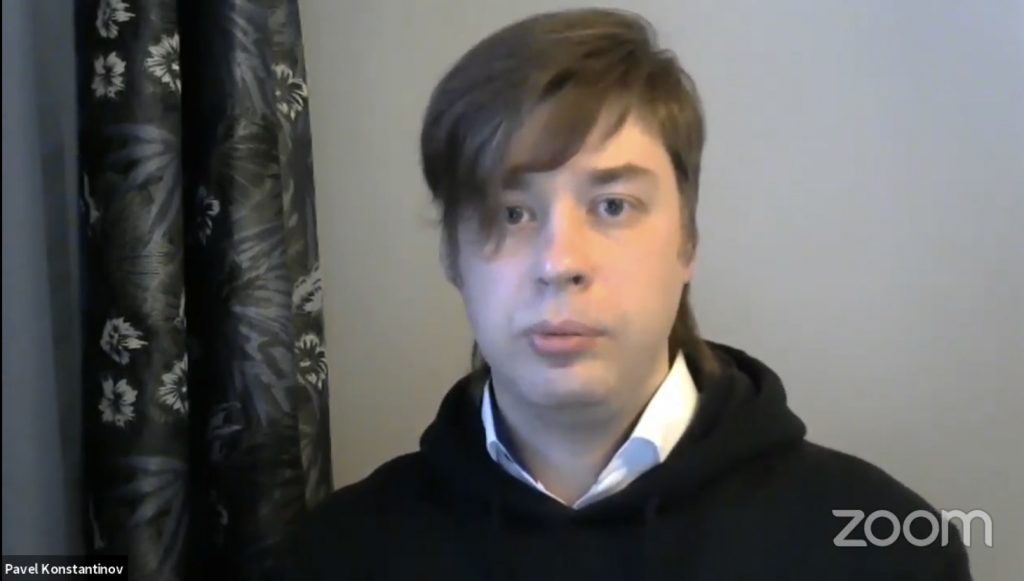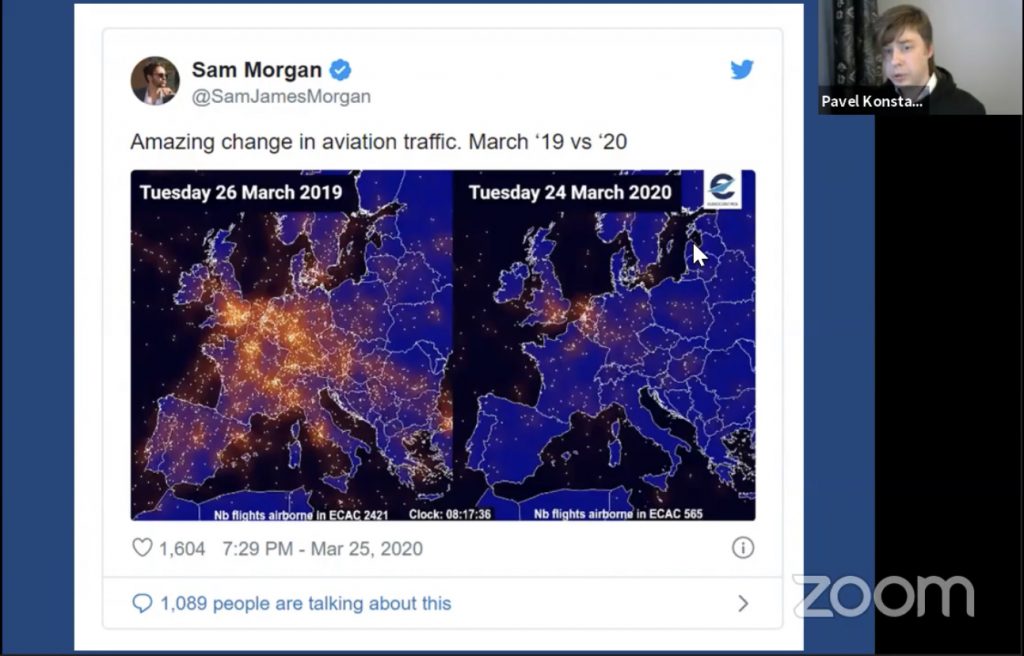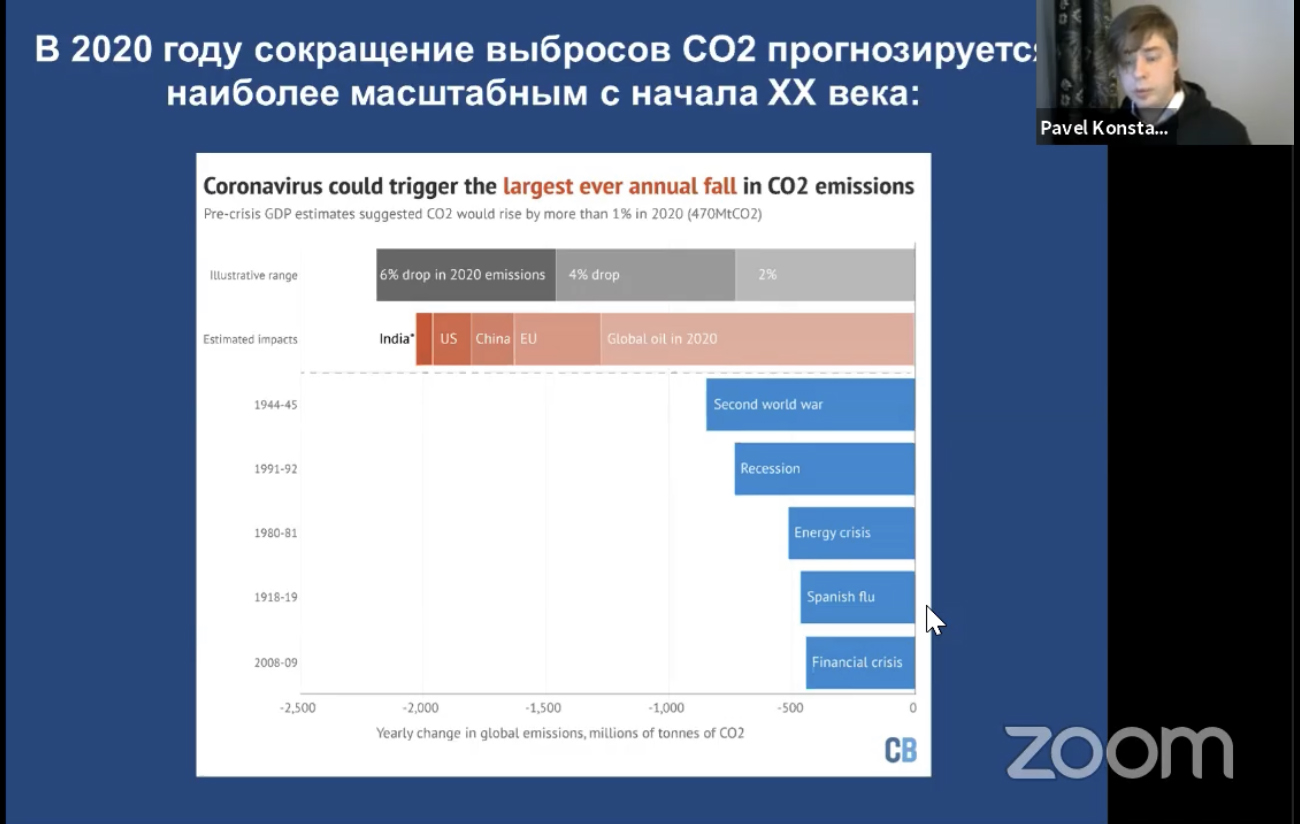April 17, 2020 a virtual meeting with Pavel Konstantinov, a climatologist, scientist at the Smart Urban Nature Laboratory (RUDN University), as well as the Executive Secretary of Russian Pan-Eurasian Experiment office (PEEX in Moscow State University) took place. The online lecture gathered about 700 viewers. In a conversation about climate, Pavel paid special attention to the current situation with coronavirus. And also shared a useful life hack how to determine the weather for tomorrow with an accuracy of 72% in two minutes.
In the popular science format, Pavel gave an online lecture “Who lives well on Earth? Human, climate and coronavirus”.
The lecturer spoke about climate change in modern conditions, the role that people play in these changes, and the consequences of global warming that we are already experiencing. Pavel also shared factual information on how the current pandemic and global lockdown are affecting the state of climate and the environment, and what it can lead to.

After an informative introduction to the history of the development of ideas about weather and climate, the main discoveries and the main theories that influenced modern climatology, the scientist identified the causes of climate change and its dangerous consequences. First of all, Pavel emphasized that the cause of climate change, in particular the tendency to global warming, is anthropogenic in nature. In other words, it is the human impact – industrial production and animal husbandry, mining, and the immeasurable exhausts of cars and aircraft – that violates the natural state of the climate, which, in turn, leads to disastrous consequences for both nature and people.
Among these dangerous consequences, the scientist identified an increase in the frequency of dangerous weather events (floods, excessive rainfall, etc.), an increase in extreme heat waves, and an increase in the frequency of heavy wind amplification – hurricanes. In general, the lecturer emphasized that the climate of almost the entire planet is getting warmer every year, which inevitably affects the quality and safety of human life.
In a conversation about climate, Pavel paid special attention to the current situation with coronavirus. According to him, the development of the pandemic, which led to a total lockdown, the forced shutdown of many enterprises and factories, the cessation of air traffic, generally slowed the pace of life of modern society and, therefore, reduced its impact on the environment, including climate. In other words, nature has the opportunity to “rest” a bit from humanity. Even today, according to Pavel, the positive dynamics in the climate change situation are noted all over the world. For example, according to the most recent data, the largest reduction in carbon dioxide emissions over the past century is expected in 2020. Despite this, as the scientist noted, these changes are temporary and so far have small scales to speak about global and serious shifts in the problem of climate change.

In general, the online lecture was quite dynamic and exciting, gathering an about 700 viewers, who inquired for various questions and asked to dispel the most common myths about weather and climate. The scientist also shared a useful life hack how to determine the weather for tomorrow on your own and with an accuracy of 72% in two minutes. Briefly: apply the inertial approach to the forecast according to the rule “tomorrow the weather is the same as today.”
The lecture was supported by the entertaining popular science portal N + 1.

